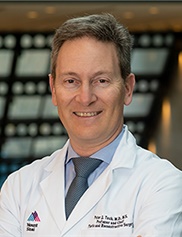Grants We Funded
Grant applicants for the 2023 cycle requested a total of nearly $4 million dollars. The PSF Study Section Subcommittees of Basic & Translational Research and Clinical Research evaluated nearly 140 grant applications on the following topics:
The PSF awarded research grants totaling over $1 million dollars to support nearly 30 plastic surgery research proposals.
ASPS/PSF leadership is committed to continuing to provide high levels of investigator-initiated research support to ensure that plastic surgeons have the needed research resources to be pioneers and innovators in advancing the practice of medicine.
Research Abstracts
Search The PSF database to have easy access to full-text grant abstracts from past PSF-funded research projects 2003 to present. All abstracts are the work of the Principal Investigators and were retrieved from their PSF grant applications. Several different filters may be applied to locate abstracts specific to a particular focus area or PSF funding mechanism.
Injectable Hydrogels for Soft Tissue Augmentation
Peter Taub MD
2023
Icahn School of Medicine at Mount Sinai
Aesthetic Plastic Surgery Research Grant
Tissue Engineering, Cosmetic
Project Summary: Soft tissue defects are a common concern in plastic surgery and represent a significant aesthetic challenge. Aging, trauma, and disease all contribute to the natural loss of dermal collagen and fat. These defects are also commonly created by surgeons following various excision procedures. As a result, there is a need for suitable materials that safely and effectively restore areas of depletion. Soft tissue fillers have been used for decades for reconstructive and aesthetic procedures. Several natural and synthetic fillers have been used clinically for tissue augmentation and for restoration of function. Currently used agents can be broadly categorized into either permanent or temporary fillers. They include autologous fat as well as manufactured biologic compounds. Each of these has their disadvantages. With the aim of developing a safer, equally effective, and more affordable alternative, the present proposal aims to develop a novel plant-derived, injectable methylcellulose (MC) soft tissue filler. Methylcellulose is an FDA-approved, water-soluble, cellulose-derived polysaccharide that is available in high purity forms and has found several biomedical applications due to its biocompatibility and low-cost. Given its plant-based origin, MC is less likely to elicit an immune response, which is a key advantage over other animal-derived natural fillers, such as collagen and hydroxyapatite. Furthermore, the absence of the cellulose-digesting enzyme, cellulase, in humans affords suitable mechanical stability and longevity of MC in vivo in comparison to other natural biomaterial fillers that are susceptible to enzymatic breakdown. The investigators aim to examine the ability of MC products to safely and effectively reconstruct surgically-created, subcutaneous, soft tissue defects.
Impact Statement: Soft tissue deficiencies affect millions of people worldwide, causing both aesthetic and functional concerns. The plant-derived, injectable methylcellulose (MC) has shown promise as a novel, soft tissue filler. The investigators are examining the ability of MC to safely and effectively restore contour to surgically-created subcutaneous defects. Recent studies by our laboratory have shown MC fillers to be stable in vivo with a similar viscosity and appearance to the native tissues they are designed to replace. The present study hopes to demonstrate longevity and mechanical stability of these compounds as they are applied to surgically created soft tissue defects.
 Peter J. Taub, M.D., F.A.C.S., F.A.A.P., is a Professor of Surgery, Pediatrics and Dentistry at the Icahn School of Medicine at Mount Sinai as well as attending plastic and reconstructive surgeon at The Mount Sinai Medical Center and Elmhurst Hospital Center. Dr. Taub is board certified in both General Surgery and Plastic and Reconstructive Surgery. After completing his training, Dr. Taub returned to New York to serve as the Chief of the Craniofacial and Pediatric Plastic Surgery service at New York Medical College and the Maria Fareri Children’s Hospital as well as the Director of the Westchester Craniofacial Center. In addition, he is an active member of the Mount Sinai Cleft and Craniofacial Center and the national professional societies ASPS, ACPA, PSRC, ASMS, and NYAM.
Peter J. Taub, M.D., F.A.C.S., F.A.A.P., is a Professor of Surgery, Pediatrics and Dentistry at the Icahn School of Medicine at Mount Sinai as well as attending plastic and reconstructive surgeon at The Mount Sinai Medical Center and Elmhurst Hospital Center. Dr. Taub is board certified in both General Surgery and Plastic and Reconstructive Surgery. After completing his training, Dr. Taub returned to New York to serve as the Chief of the Craniofacial and Pediatric Plastic Surgery service at New York Medical College and the Maria Fareri Children’s Hospital as well as the Director of the Westchester Craniofacial Center. In addition, he is an active member of the Mount Sinai Cleft and Craniofacial Center and the national professional societies ASPS, ACPA, PSRC, ASMS, and NYAM.